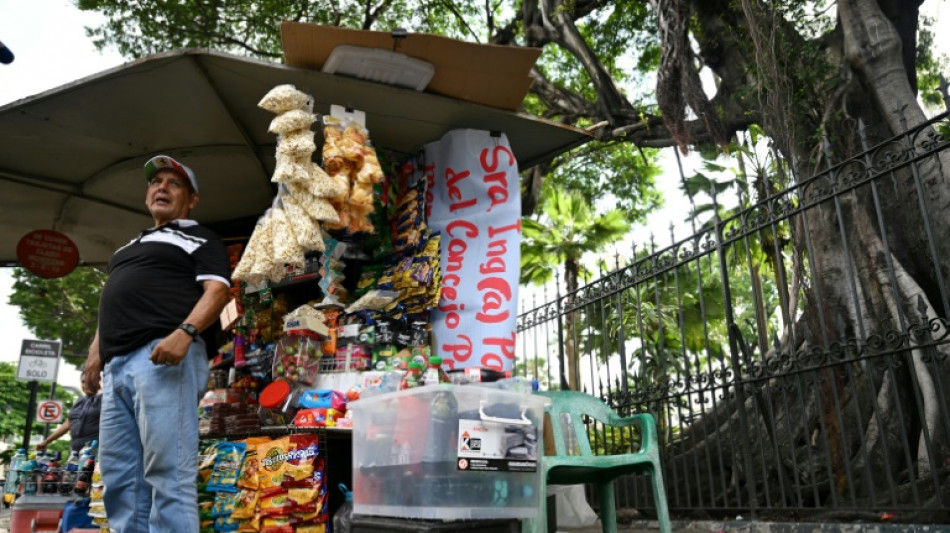
-
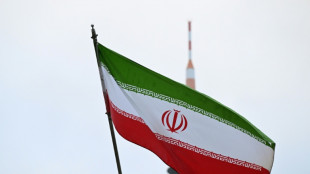 Iran hangs man as Israeli spy after 'unfair' trial: activists
Iran hangs man as Israeli spy after 'unfair' trial: activists
-
Stock markets mostly rise ahead of US economic data, tech earnings
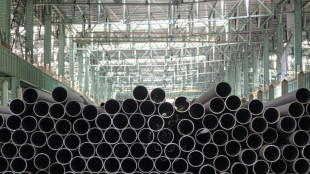
-
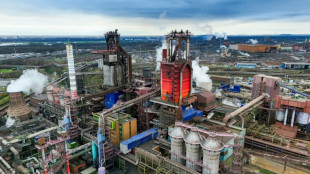 German growth better than expected but tariff turmoil looms
German growth better than expected but tariff turmoil looms
-
Sinner denies beneficial treatment in doping scandal ahead of Rome return
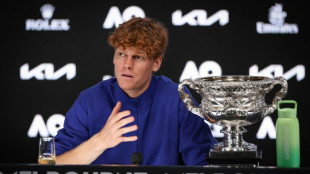
-
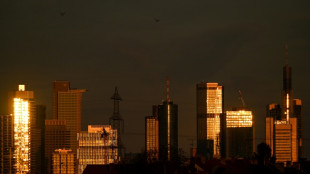 Eurozone economy grows more than expected despite US tariff turmoil
Eurozone economy grows more than expected despite US tariff turmoil
-
Toulouse hooker Mauvaka out of Champions Cup semi
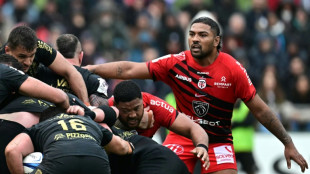
-
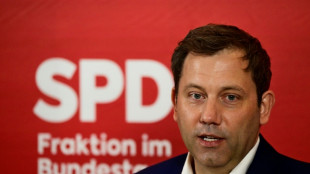 Germany's next finance minister, 'bridge-builder' Lars Klingbeil
Germany's next finance minister, 'bridge-builder' Lars Klingbeil
-
Mehidy century puts Bangladesh in command against Zimbabwe
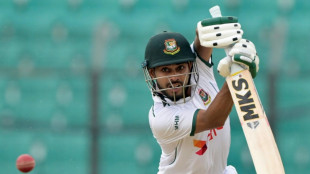
-
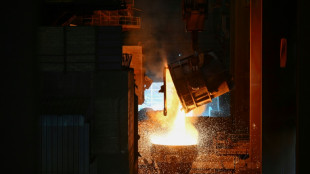 Steelmaker ArcelorMittal warns of uncertainty
Steelmaker ArcelorMittal warns of uncertainty
-
Vietnam's Gen-Z captivated by 50-year-old military victory
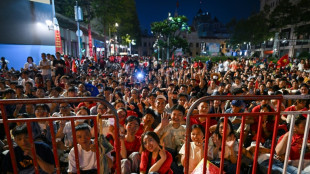
-
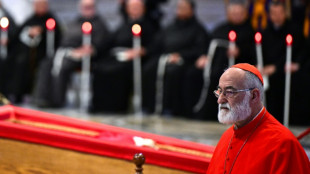 Moroccan-based cardinal says Church does not need Francis 'impersonator'
Moroccan-based cardinal says Church does not need Francis 'impersonator'
-
US official tells UN top court 'serious concerns' over UNRWA impartiality
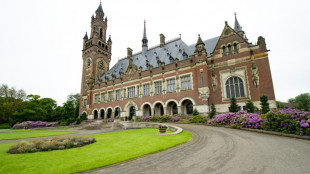
-
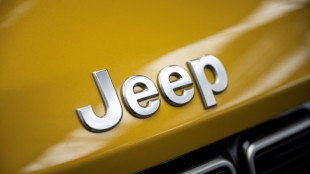 Jeep owner Stellantis suspends outlook over tariffs
Jeep owner Stellantis suspends outlook over tariffs
-
New Zealand, Phillippines sign troops deal in 'deteriorating' strategic environment
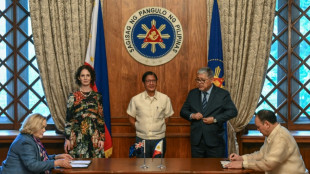
-
 Aston Martin limits US car imports due to tariffs
Aston Martin limits US car imports due to tariffs
-
Pakistan says India planning strike as tensions soar over Kashmir
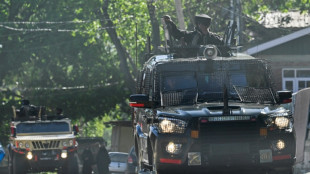
-
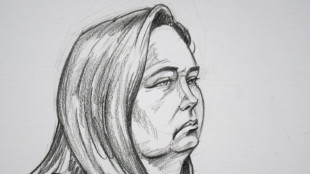 Australian triple-murder suspect allegedly cooked 'special' mushroom meal
Australian triple-murder suspect allegedly cooked 'special' mushroom meal
-
Most stock markets rise despite China data, eyes on US reports
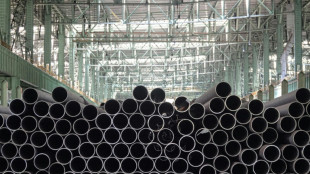
-
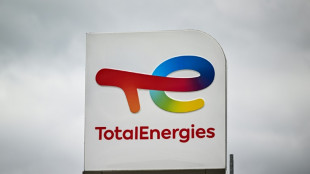 TotalEnergies profits drop as prices slide
TotalEnergies profits drop as prices slide
-
Volkswagen says tariffs will dampen business as profit plunges
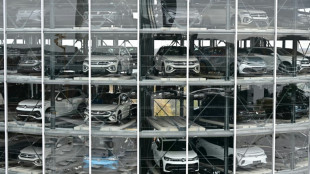
-
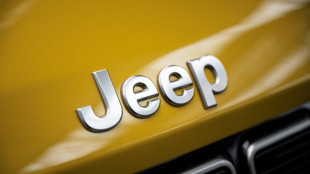 Jeep owner Stellantis suspends 2025 earnings forecast over tariffs
Jeep owner Stellantis suspends 2025 earnings forecast over tariffs
-
China's Shenzhou-19 astronauts return to Earth
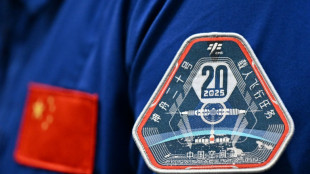
-
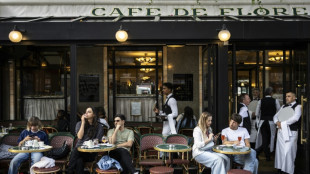 French economy returns to thin growth in first quarter
French economy returns to thin growth in first quarter
-
Ex-Premier League star Li Tie loses appeal in 20-year bribery sentence
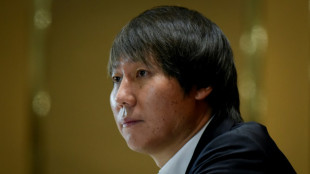
-
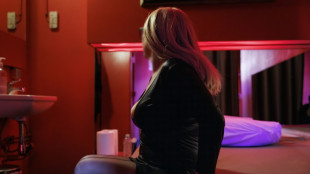 Belgium's green light for red light workers
Belgium's green light for red light workers
-
Haliburton leads comeback as Pacers advance, Celtics clinch
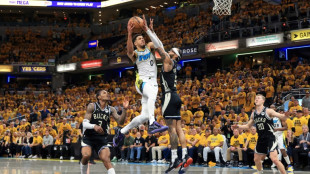
-
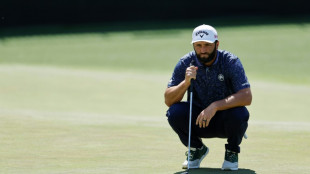 Rahm out to break 2025 win drought ahead of US PGA Championship
Rahm out to break 2025 win drought ahead of US PGA Championship
-
Japan tariff envoy departs for round two of US talks
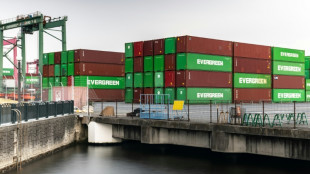
-
 Djurgarden eyeing Chelsea upset in historic Conference League semi-final
Djurgarden eyeing Chelsea upset in historic Conference League semi-final
-
Haliburton leads comeback as Pacers advance, Pistons stay alive
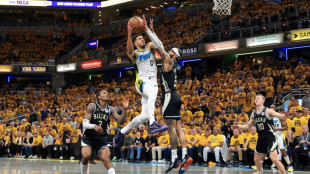
-
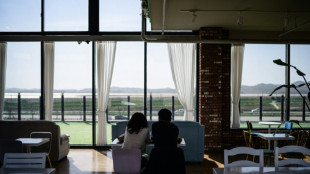 Bunker-cafe on Korean border paints image of peace
Bunker-cafe on Korean border paints image of peace
-
Tunics & turbans: Afghan students don Taliban-imposed uniforms
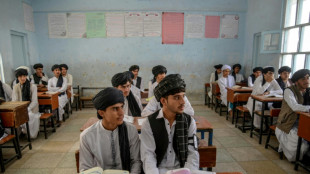
-
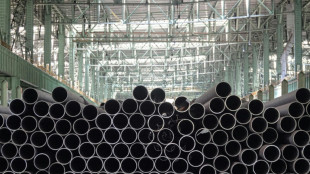 Asian markets struggle as trade war hits China factory activity
Asian markets struggle as trade war hits China factory activity
-
Norwegian success story: Bodo/Glimt's historic run to a European semi-final
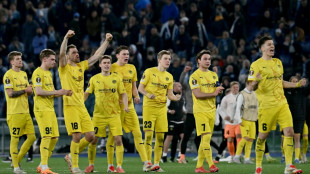
-
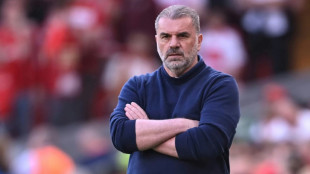 Spurs attempt to grasp Europa League lifeline to save dismal season
Spurs attempt to grasp Europa League lifeline to save dismal season
-
Thawing permafrost dots Siberia with rash of mounds
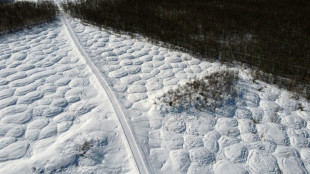
-
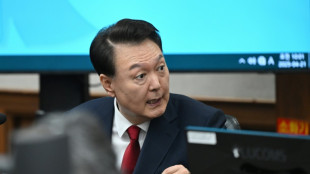 S. Korea prosecutors raid ex-president's house over shaman probe: Yonhap
S. Korea prosecutors raid ex-president's house over shaman probe: Yonhap
-
Filipino cardinal, the 'Asian Francis', is papal contender
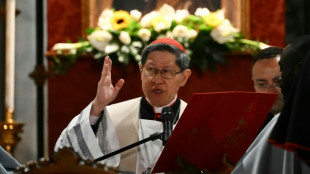
-
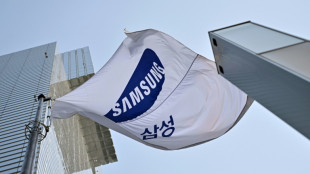 Samsung Electronics posts 22% jump in Q1 net profit
Samsung Electronics posts 22% jump in Q1 net profit
-
Pietro Parolin, career diplomat leading race to be pope
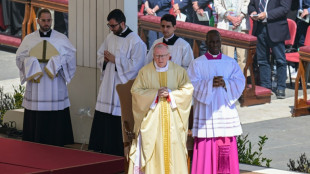
-
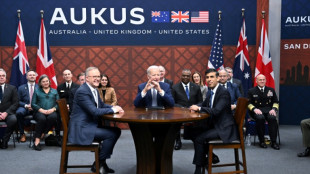 Nuclear submarine deal lurks below surface of Australian election
Nuclear submarine deal lurks below surface of Australian election
-
China's manufacturing shrinks in April as trade war bites
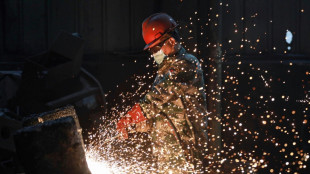
-
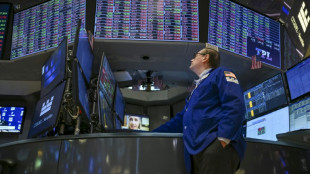 Financial markets may be the last guardrail on Trump
Financial markets may be the last guardrail on Trump
-
Swedish journalist's trial opens in Turkey
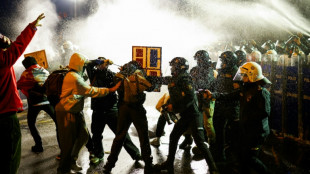
-
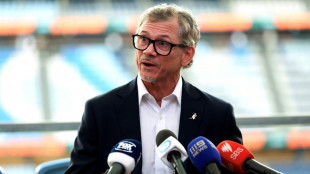 Kiss says 'honour of a lifetime' to coach Wallabies at home World Cup
Kiss says 'honour of a lifetime' to coach Wallabies at home World Cup
-
US growth figure expected to make for tough reading for Trump
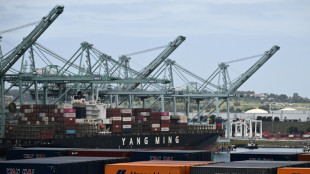
-
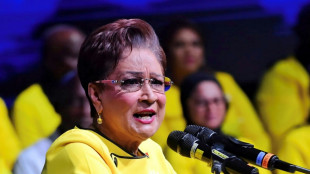 Opposition leader confirmed winner of Trinidad elections
Opposition leader confirmed winner of Trinidad elections
-
Snedeker, Ogilvy to skipper Presidents Cup teams: PGA Tour
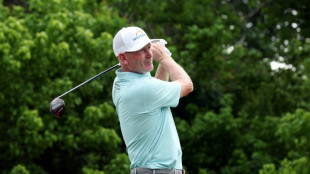
-
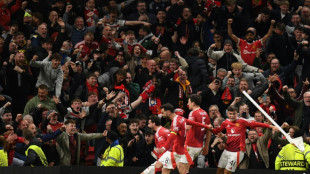 Win or bust in Europa League for Amorim's Man Utd
Win or bust in Europa League for Amorim's Man Utd
-
Trump celebrates 100 days in office with campaign-style rally
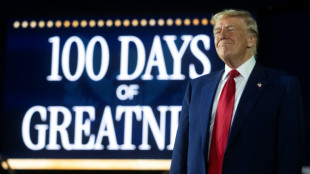

Ecuador's presidential hopefuls face toxic brew of crime, unemployment
Cartel violence is hollowing out Ecuador's largest city Guayaquil, scaring away tourists, pummelling the economy and leaving whoever wins Sunday's presidential election with a gargantuan problem.
In picturesque and once-bustling Seminary Park, these days iguanas almost outnumber visitors.
"In the afternoon it feels like a cemetery," said Juan Carlos Pesantes who has sold sweets and drinks from a park-side kiosk for 16 years.
"There are no tourists left."
Pesantes has watched as several businesses, including a once popular hotel, close down around him.
In three years, his income has halved and Guayaquil has been transformed from the beating heart of Ecuador's economy into one of the most violent cities in Latin America.
Some months, the country averages more than one murder an hour.
The park is now locked by 18:00 instead of 22:00, just in case any visitors are tempted to hang around after dark.
Against this grim backdrop, the economy fell into recession late last year.
But insecurity is not the only issue ailing Ecuador's economy.
Either incumbent president Daniel Noboa or his leftist rival Luisa Gonzalez will have to reckon with deep social inequality, unemployment, an energy crisis, low rates of investment, groaning public finances and low oil revenues.
Pesantes is "undecided" about which one of the two neck-and-neck rivals to vote for.
"There is no confidence" in them, he said.
- Going out is risky -
Ecuador's woes stem from a boom in Colombian cocaine production and the attractiveness of its ports for shipping the drug to lucrative markets in Asia, Europe and the United States.
The bloodshed has increased as a multitude of gangs, cartels and mafias vie to control routes.
The surge in gang activity has had a direct impact on normal economic activity.
Violence is "affecting consumption. The population has fewer possibilities to go out on the street, to a restaurant, to make a purchase, it's risky," said Alberto Acosta Burneo, an economic analyst at the Spurrier group.
In a poor neighborhood of Guayaquil, Paola Valdivieso, a 54-year-old salon worker, talks about the "fear, the dread" she feels when she has to walk "looking in all directions."
Bananas, one of Ecuador's main export products -- along with oil, cocoa, shrimp, and flowers -- also suffer from organized crime.
"We are victims of drug trafficking," Richard Salazar, director of a banana growers' association tells AFP.
"We are victims of crime and organized crime with extortions," and despite checks, drug traffickers use large shipments of fruit to move cocaine, he explained.
In a depressed economy, unemployment and underemployment affect almost a quarter of the population and one in three are poor, according to official figures.
There is "a lot of informality" in employment, with poorly paid and precarious jobs, Acosta Burneo said.
Septuagenarian retiree Gerardo Ortiz explained he can just about "subsist" on his $280 a month pension as he jokingly pointed to his "car" -- in reality a rusty bicycle leaning against a tree.
With cash tight and security poor, foreign investors that once flocked to dollarized Ecuador have stayed away.
The lack of investment "is reflected in an economy that does not grow as it should," according to Acosta Burneo.
In 2023 and 2024, a lack of investment in the power sector and a serious drought caused power outages that lasted up to 14 hours a day.
- No easy answers -
In response to this multi-headed economic crisis, the presidential candidates propose very different solutions.
"Gonzalez's plan is to bring a return of the strategic state" through infrastructure development and investments in public services, according to Christophe Ventura, a Latin America specialist at France's Institute for International and Strategic Affairs (IRIS).
The leftist candidate advocates for a tax system that imposes a higher burden on the private sector and plans to reduce value-added tax, which Noboa increased from 12 percent to 15 percent.
Noboa has backed tough security measures and traditional neoliberal economic policies -- negotiating a trade agreement with Canada to boost extractive industries.
T.Zimmermann--VB
